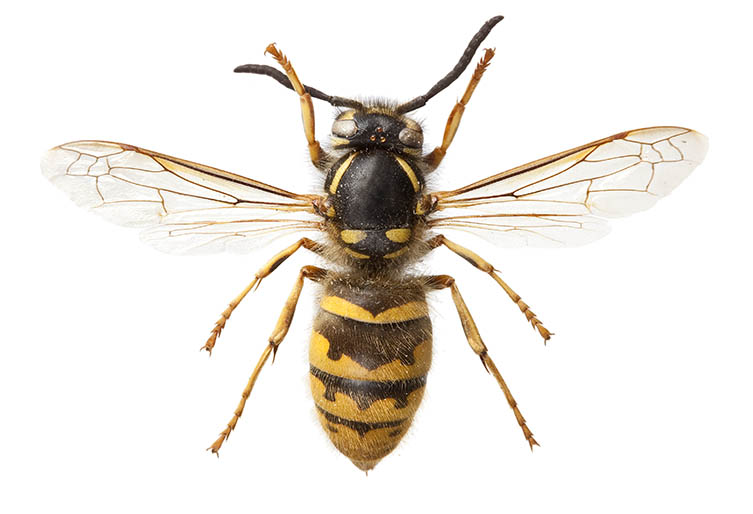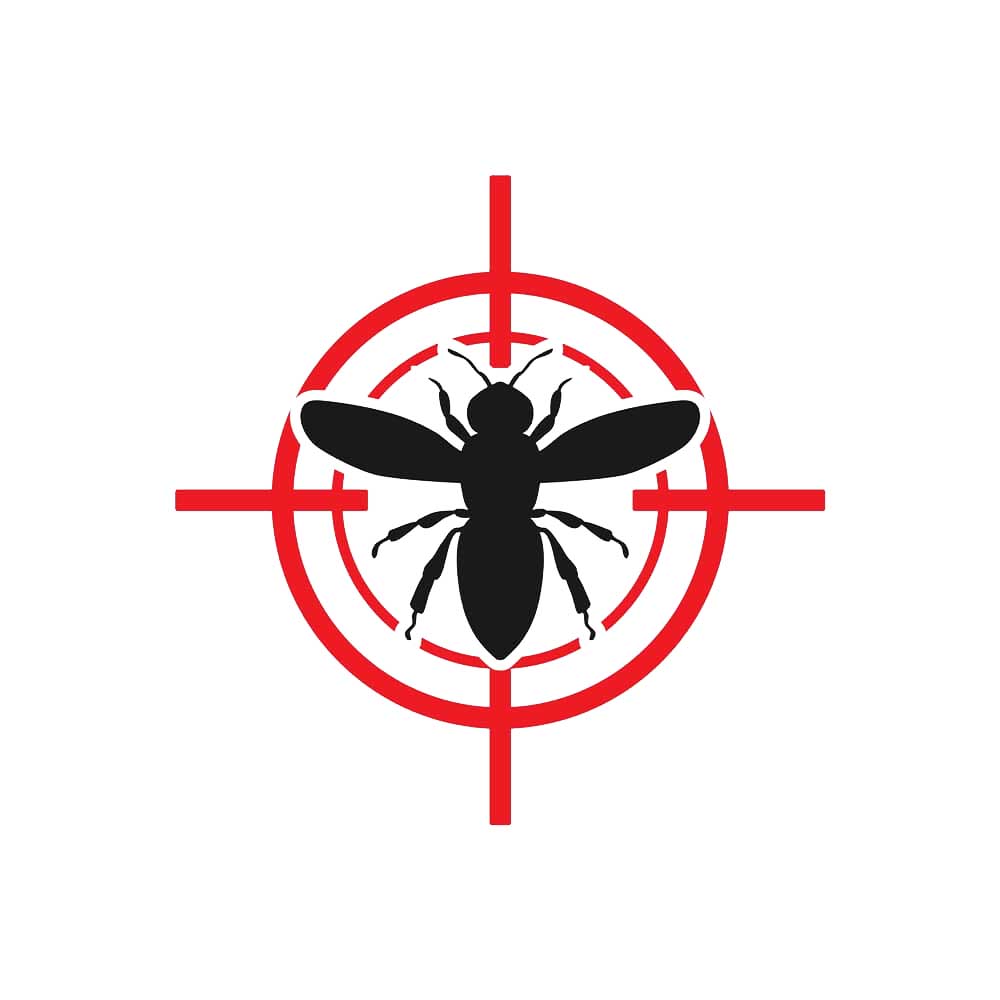
Generally regarded as a nuisance, adult wasps feed on nectar and sweet fruit. They collect insects, including caterpillars to feed to their larvae.
Adult workers of the common wasp measure about 12 mm to 17 mm from head to abdomen, whereas the queen is about 20 mm long. Wasps are yellow and black in colour.
The fertilised queen wasp emerges around mid-April to start nest building and lay eggs. Initially, she lays between 10 and 20 eggs. This emergent first brood of adult workers (sterile females) takes over the tasks of enlarging the nest.
Wasp infestations are on the rise in Ireland, warmer summers and milder winters are the perfect scenarios for allowing wasps to flourish.
A wasp infestation can be downright dangerous, so if you think you have a wasp problem, then call us today. Our quick and efficient service can quickly eradicate any wasp nest.
At Complete Pest Control, our 100% guarantee means you can be certain we can take the sting out of summer.
Wasps begin to appear in Ireland from late April onwards, and as the summer progresses, so do their numbers. Their numbers and activity levels peak in the late summer and early autumn months, but they can be a problem at any time in the warmer months.
If your home or business has a wasp problem, then dealing with it quickly is essential. Our discrete services can efficiently and promptly eradicate any wasp infestation.
Don’t get stung this summer! Call us today for a quick solution to your wasp problem.
For your complete peace of mind, our wasp control services are carried out by highly trained technicians and are guaranteed to resolve your problem.
As one of Ireland’s leading pest control companies, you can be assured that your wasp problem will be dealt with quickly, efficiently, and discretely. Additionally, all our pest control solutions are backed by our commitment to providing industry-leading customer care.
All our Wasp Control Solutions include the following:
The earlier a wasp problem is identified, the easier and safer it is to eradicate. If you are worried that there may be a wasp problem at your property, then these are the signs to look for:
If there are high numbers of wasps in the vicinity of your home, garden, or business, then it is a fair bet that there is a wasp nest nearby. This could be in your garden, on your property, or somewhere close by.
At the peak of the wasp season, a single nest can contain thousands of individuals, so the earlier a wasp nest is identified, the easier it is to treat.
Wasp nests have a papery appearance due to the mix of wood pulp and saliva used in their construction. They can vary in size from that of a golf ball to football-sized in the case of a mature nest.
Commonly these can be found in sheltered areas that provide shelter and easy access. This can be under the eaves, sheds, attic spaces, and even on the ground. In short, wasps are not too fussy about where they nest. In many cases, the nest may not be visible but can still be identified by watching the flight path of wasps as they move to and from the nest.
While there are DIY solutions available, we would never recommend this once the nest numbers more than a handful of individuals. Wasps get aggressive when the nest is threatened, and this is when they are at their most dangerous.
At Complete Pest Control, we understand how distressing and dangerous a wasp nest on your property can be. That’s why we take our commitment to protect you, your family, and your customers so seriously.
Whether it is a commercial or residential wasp problem, all our services are:
Carried out by Qualified Professionals – We only use fully trained technicians armed with the latest equipment and safety gear.
We use Safe Treatments – our wasp treatments aren’t harmful to humans, pets, or other wildlife. We also apply strict guidelines to keep you safe during the treatment.
Personal Service – We provide a high level of support, and our commitment to customer service means you receive advice and guidance every step of the way.
Call us today for a convenient, efficient, and speedy resolution to commercial and domestic wasp nest problems.

Complete Pest Control is based on a solid foundation Of honesty, integrity and strong customer orientated relationships.
Website Design by www.ottmarketing.ie